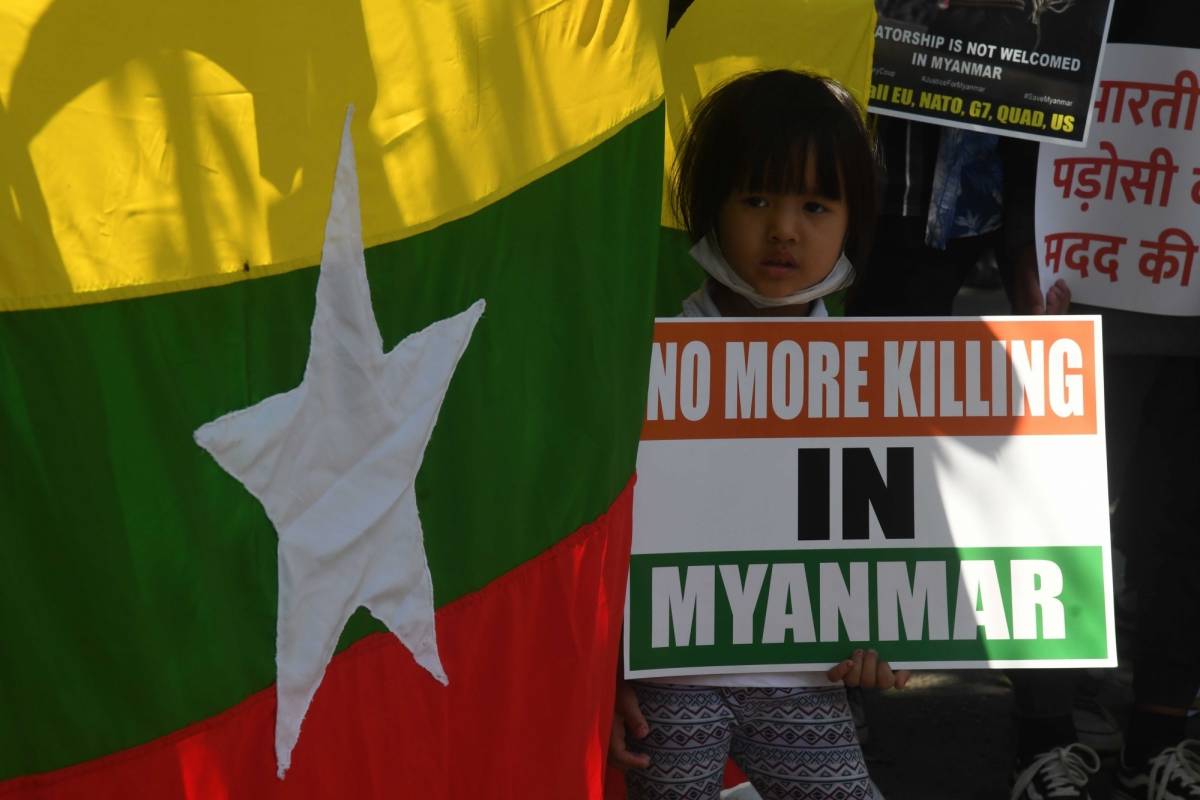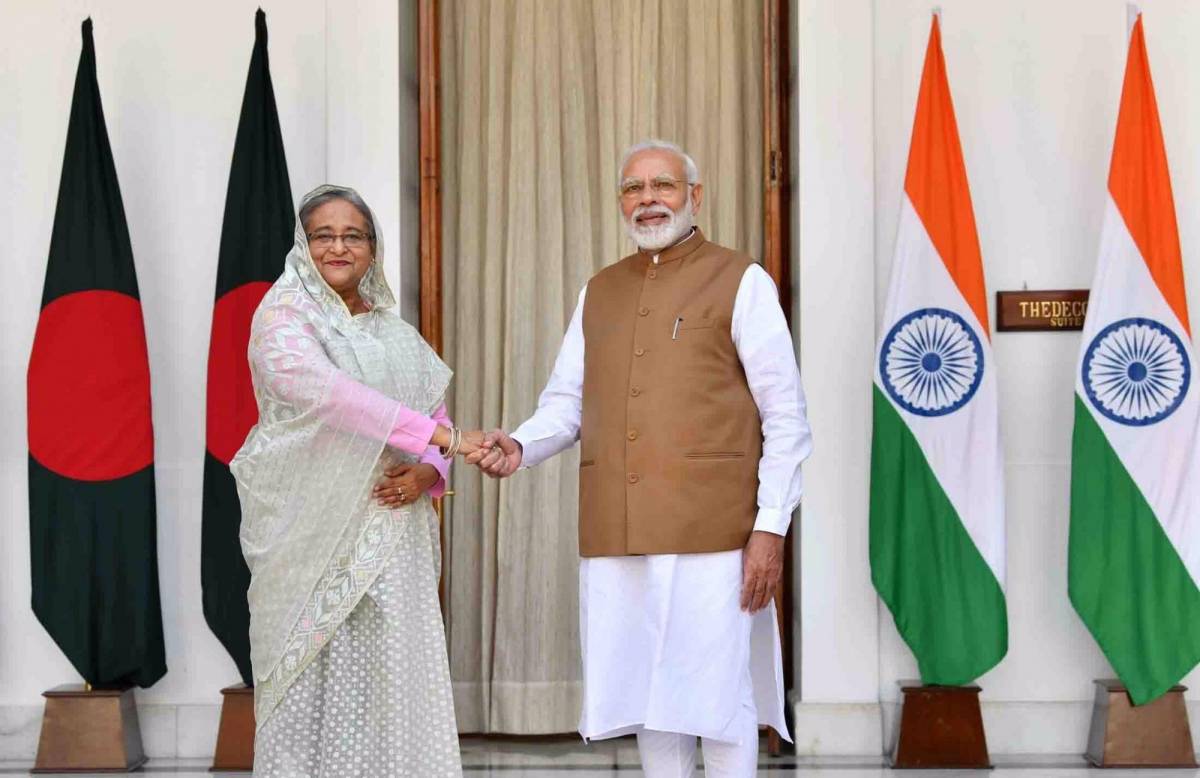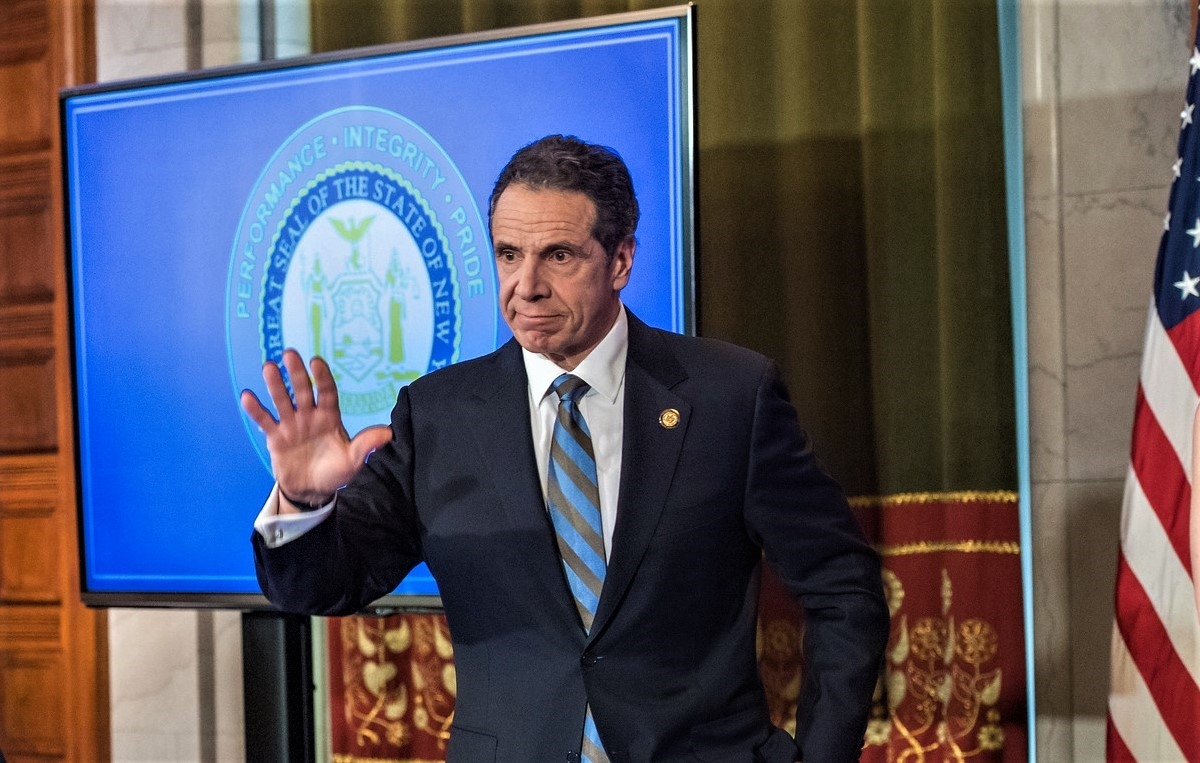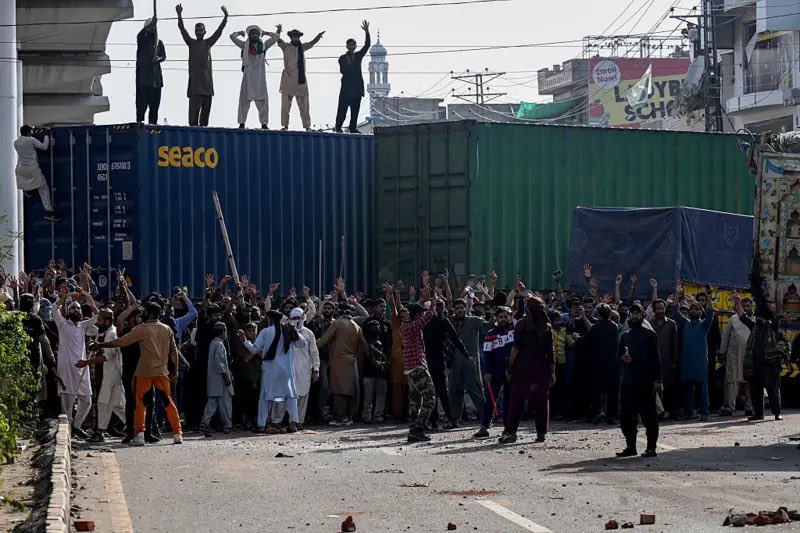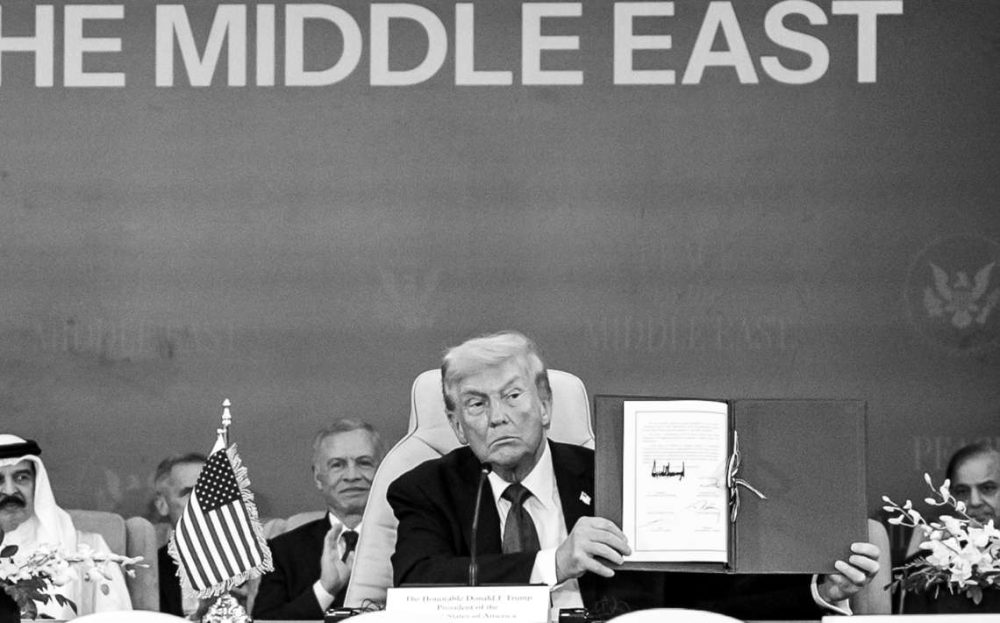Myanmar’s anti-coup protest leaders said they have decided to initiate a nationwide boycott of Chinese goods, reports Subir Bhaumik
The wrath of Myanmarese protesters seeking a return to parliamentary democracy have turned against China and its multiple projects.
Myanmar protest leaders said they have decided to initiate a nationwide boycott of Chinese goods.
One of them, on the condition of anonymity, said that neighbourhood protest committees have been asked to spread by word of mouth the appeal to boycott Chinese goods.
Also Read – Junta intensifies media crackdown in Myanmar
“Indian businesses should open marts here. Our people will switch over to Indian products even if they are slightly more expensive,” the protest leader in commercial hub Yangon said over the phone.

But he appealed to India not to turn back those fleeing into the country, specially the eight policemen who fled into Mizoram from Myanmar’s Chin state.
Chin state authorities have formally sought their early repatriation as a “goodwill gesture”.
“These policemen will be executed by the military because they refused to shoot on peaceful protesters,” the protest leader said.
Mizoram Chief Minister Pu Zoramthanga has pitched for sheltering those who have fled into his state.
Also Read – Myanmar lifts Arakan Army’s terrorist label
A local group, Zoram Reunification Organisation which seeks integration of the Mizo-Kuki-Chin ethnic groups, has petitioned Indian President Ramnath Kovind and the Centre not to deny refuge to those fleeing into Myanmar from Myanmar.
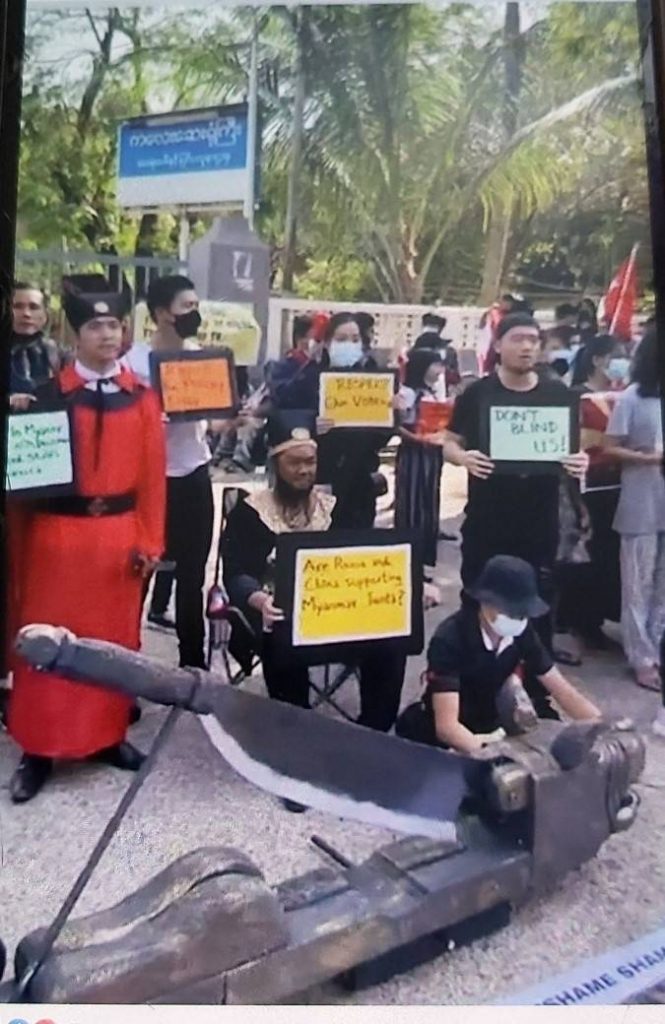
This after the Centre asked northeastern states bordering Myanmar and the Assam Rifles, which guards the 1643 India-Myanmar border, to stop a large scale influx from the neighbouring country.
Delhi is yet to take a call on the Myanmar request to hand back the eight policemen.
Protesters in Yangon are carrying placards “Myanmar coup, Made in China” during the demonstrations.
Some of them during the rallies this week also raised slogans like “Burn the Chinese gas pipeline”.
Hailed by China as a symbol of “mutually beneficial cooperation”, the 770-km pipeline connecting the Burmese port of Kyaukphyu to China’s Yunnan province was the focal point of public rage due to local perception that Beijing was backing the military that seized power on February 1.
Also Read – Myanmar nun pleads with military to stop shooting
On Friday, protesters shouted “Chinese business, Out! Out!”, in Mandalay city, a staging point on pipelines across Myanmar from the Indian Ocean to China.
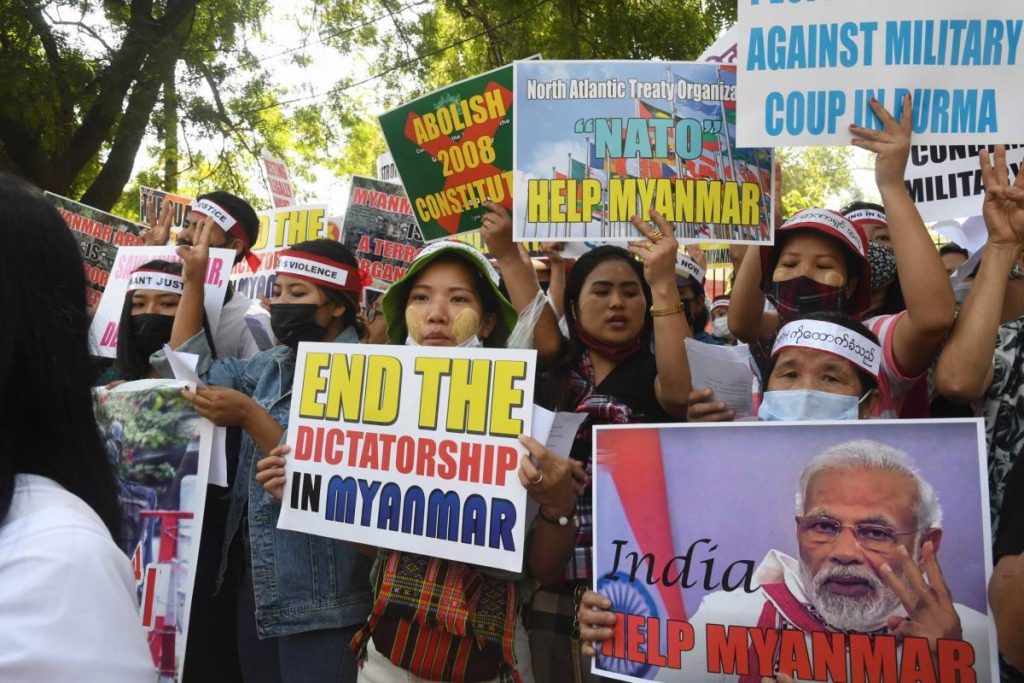
Burmese social media carried many more such threats.
Mandalay’s iconic jade market is now largely controlled by the Chinese traders who are unpopular because they often manipulate prices owing to their bulk buying clout.
The Kyaukphyu-Yunnan gas pipeline, which carries gas from Myanmar’s offshore fields, opened in 2013, as Myanmar’s military allowed the nation moved towards democracy.
The $1.5 billion oil pipelinenbrings crude mainly from the Middle East for Chinese market.
A PetroChina official who declined identification said there had been no problems with the operation of the oil pipeline so far .
It is the only source of crude for the state energy giant’s refinery in Kunming, Yunnan.
Protests over the pipeline flared after a Myanmar government document leaked from a February 24 meeting showed Chinese officials had asked Myanmar’s junta to provide better security – and intelligence on ethnic minority armed groups on the pipeline route.
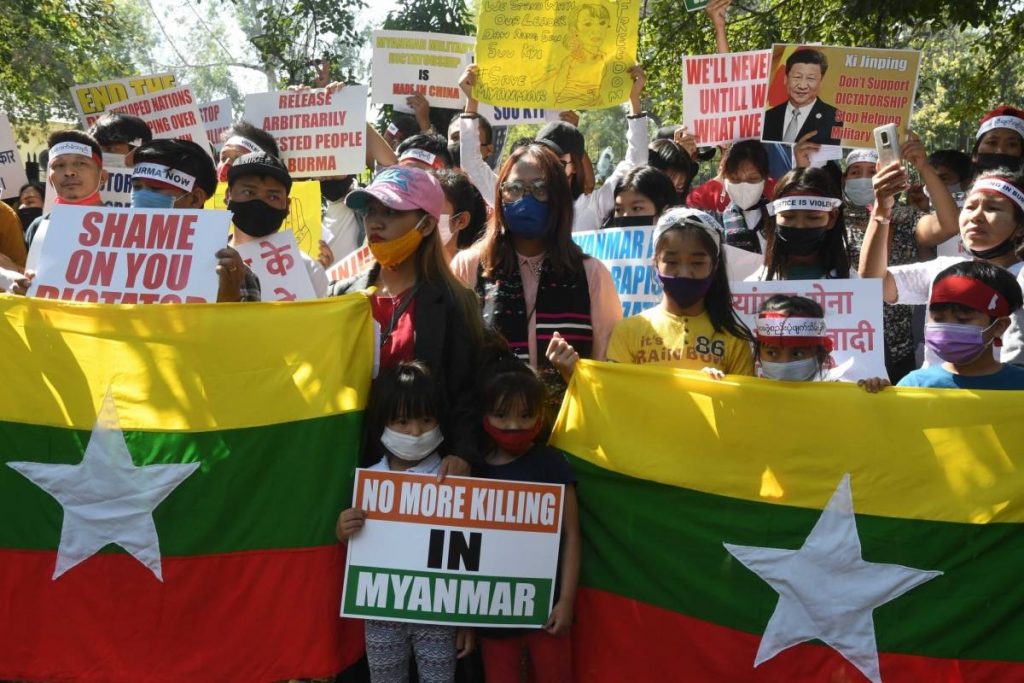
“Safeguarding the security of bilateral cooperation projects is the common responsibility of both China and Myanmar,” China’s Foreign Ministry said in response to questions on the document.
It reiterated its call for “all sides in Myanmar to exercise calm and restraint” and to resolve their differences.
“This would also benefit the secure operations of bilateral cooperation projects,” it said.
China has earmarked billions of dollars for such projects, including an economic corridor ending at a $1.3 billion deepwater port, industrial zones, a new city next to the commercial hub of Yangon and a railway to the border.
“Hostile public opinion will inflict long-term threats and damage to China’s plan,” said Yun Sun, director of the China Program at the Washington-based Stimson Center.
Beijing’s reputation was hit over the failed $6 billion Myitsone Dam project in Kachin state.
The project was shelved in 2011 over stiff Kachin tribal unrest because the entire 6,000MW output was marked for export to China from a state where less than 2 per cent of the household have electricity.
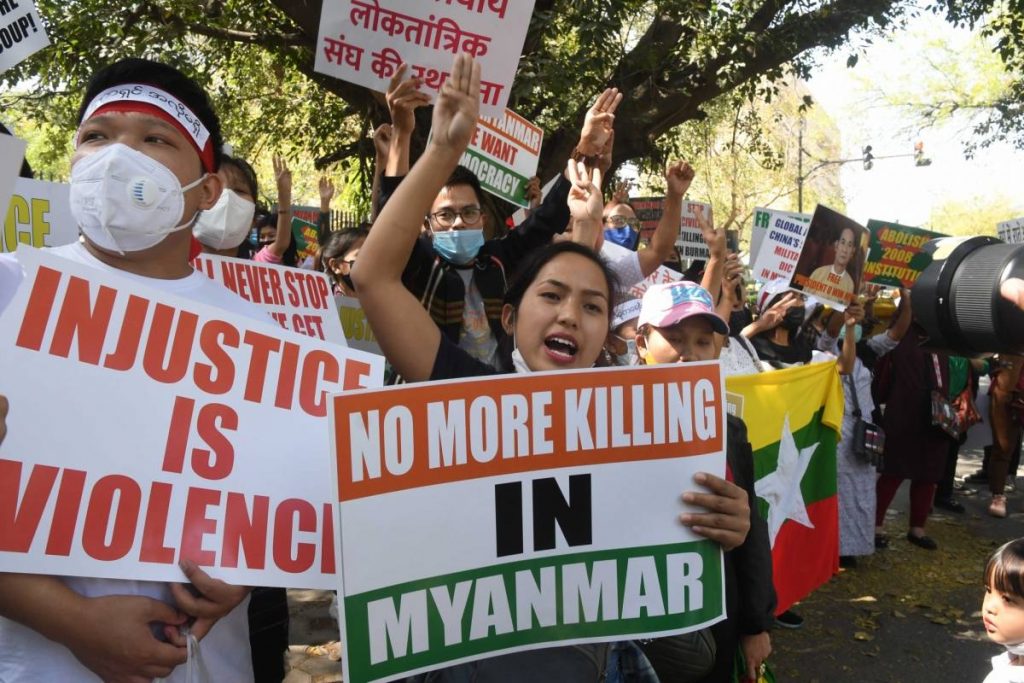
Myammarese environmentalists and political parties also opposed the project fearing sharp downstream drop in water volume on Irrawaddy river which could threaten the country’s agriculture and food security.
Sustained Chinese lobbying failed to revive the project during the last decade.
Kachin leaders have told mediapersons any Chinese effort to revive the Myitsone dam project will be “furiously resisted”.
Chinese projects like the Lepetdaung copper mine also face local resistance over forced landgrabs with military backing.
Also Read – US blacklists Myanmar ministries


